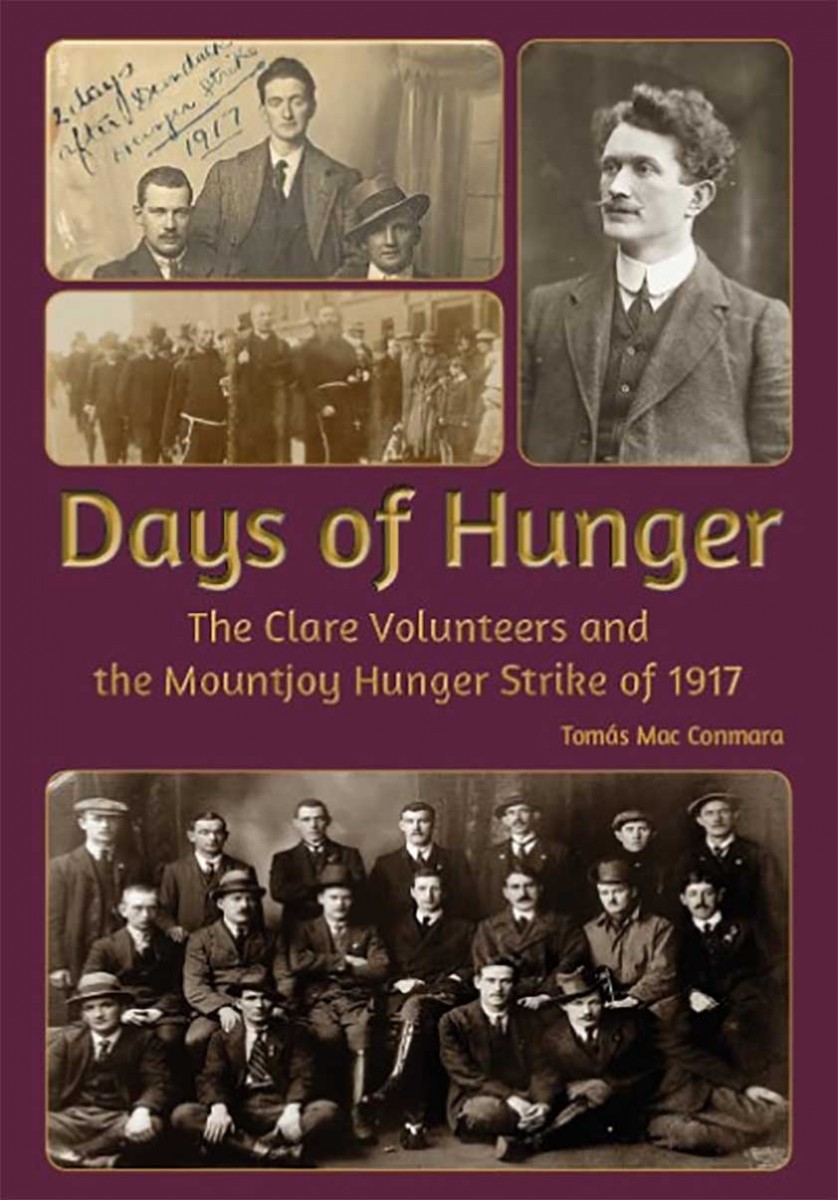
A new book charting the role played by Clare republicans in 1917 will be launched next month.
Written by well-known oral historian and author Dr. Tomás Mac Conmara, Days of Hunger, The Clare Volunteers and the Mountjoy Hunger Strike of 1917, breaks fresh ground on the often overlooked year of 1917 and shines a light on how events in that year in county Clare, helped bring about a new landscape in Irish politics.
Mac Conmara has previously published books on Frongoch internment camp as well as Clare’s All Ireland hurling journey in 1914 but is perhaps better known for his work in oral history and folklore collection across the county. In his latest book, Mac Conmara examines in granular detail, events across 1917 and carefully explains their significance in the historic struggle for Irish independence.
In the first year after the Easter Rising of 1916, trepidation may have existed within the British establishment, but it would be only in the summer of 1917 that the confrontation, which had been anticipated began to develop. Mac Conmara argues that in Clare, decisions taken by the Volunteer leadership, engineered an open confrontation of British rule and brought relations to a head.

By September, the ancient conflict between Britain and Ireland was condensed within the walls of Mountjoy Prison in Dublin. There thirty-eight republican prisoners who had been arrested over the summer, faced down the system of British rule within a new and uncertain arena of struggle, the hunger strike. Once the hunger strike began, Mac Conmara explains that there could only be three possible outcomes; surrender by the prisoners, concession by the government, or death.
Five days into the episode, Tomás Ashe, a 32-year-old republican from Kerry died as a result of force-feeding and the political landscape in Ireland seemed to shift. Amongst those on hunger strike were sixteen Clare men, by far the largest number from one Irish county. Days of Hunger charts the role played by those Clare republicans throughout 1917 and illuminates the enduring significance of events in that year for modern Irish history.
The political landscape in the lead up to 1917 is given a robust treatment, revealing a closed and oppressive system of rule. The famous East Clare by-election of July 1917 and the role of Cumann na mBan in leading a confrontational campaign are also explored, as are the increasingly bitter relations between republicans and the Royal Irish Constabulary.
Mac Conmara also deals with the often controversial political weapon of the hunger strike and places it in the context of Irish folklore and mythology, as well as dealing with its legacy for modern Irish history. Historians have been quick to heap praise on the book. Daniel McCarthy, author of Ireland’s Banner County commented:
‘In accounting for one of the most potent weapon’s in republicanism’s arsenal of democracy, Mac Conmara looks to his own native county and its role in the hunger strikes of 1917. In its introspection he succeeds in giving insight to the motivations and factors behind the rise of advanced nationalism on both local and national levels. Mac Conmara has devoted his working life to the study and promotion of Irish history and has mastered its deeper, darker realities in this work.’
The Limerick historian and author of the acclaimed tome, The War of Independence in Limerick 1912-1921, was equally impressed;
Days of Hunger is a very important contribution to understanding the Revolutionary period (1914 – 1923). Mac Conmara has produced an excellent work on the understated period of 1917-18 and bridges the 1916 Rising and the General Election of 1918. He deals with the period in painstaking detail and for this, history owes him a great debt.
The book will be launched at the Old Ground Hotel by Limerick historian Tom Toomey on Friday 15 October at 8.00pm and will be available to purchase on the night for €15.